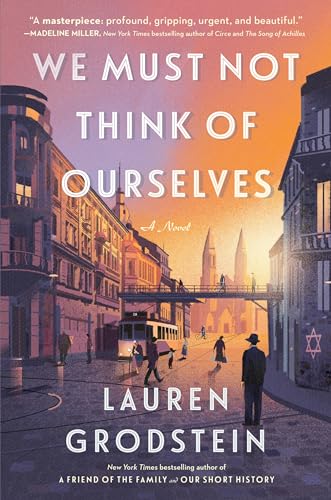We Must Not Think of Ourselves
Acts of resistance take many forms. For the Jews confined in the Warsaw Ghetto by the Nazis in November 1940, conditions are miserable: cramped living quarters, food shortages, mandatory curfews, increasing restrictions, harsh abuses stemming from pure bigotry. But these people are determined to embrace life, even as it becomes clear the world won’t be rescuing them. “It is up to us to write our own history… Deny the Germans the last word,” says organizer Emanuel Ringelblum, in recruiting the narrator of this penetrating novel to his clandestine archival team.
As a recorder for the Oneg Shabbat (“joy of the Sabbath”) project, Adam Paskow, a 42-year-old widower, agrees to interview his fellow Jews about their daily lives and histories, whatever they witness in the ghetto and choose to reveal. Adam, an English teacher who continues his classes in the basement of a destroyed cinema, is an affable fellow. Having been surprised into sharing a small apartment with two families, he finds his interviewees close by. The children’s accounts are simultaneously poignant and delightful. While young boys smuggle food in from the outside, keeping their families alive, they remain amusingly disinterested in adult issues and problems, including Adam’s nosy questions. And through the unavoidable intimacy of their shared living space, Adam grows close to Sala Wiskoff, a married mother of two who’s resourceful, caring, and witty. Still in possession of his late wife’s valuable jewelry, Adam clings to it, realizing its value as a future bargaining chip during desperate times.
The Oneg Shabbat was a real-life documentary project, a unique example of cultural resistance during the Holocaust in Poland. Grodstein movingly re-creates the circumstances behind its creation, capturing the dire atmosphere of the Ghetto and the richly developed, distinctive lives of the people trapped within its walls. Among recent WWII-era fiction, this is a memorable standout.










